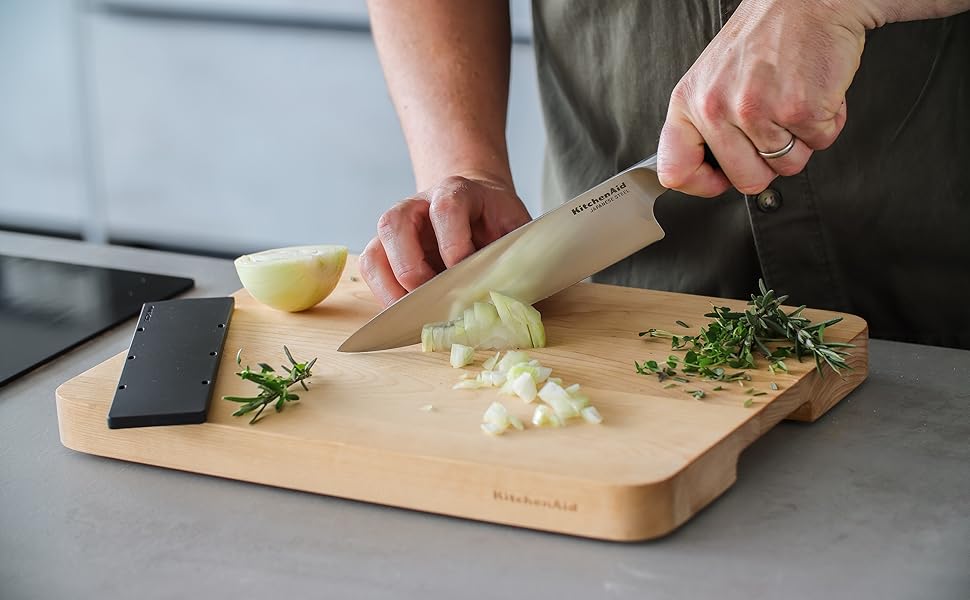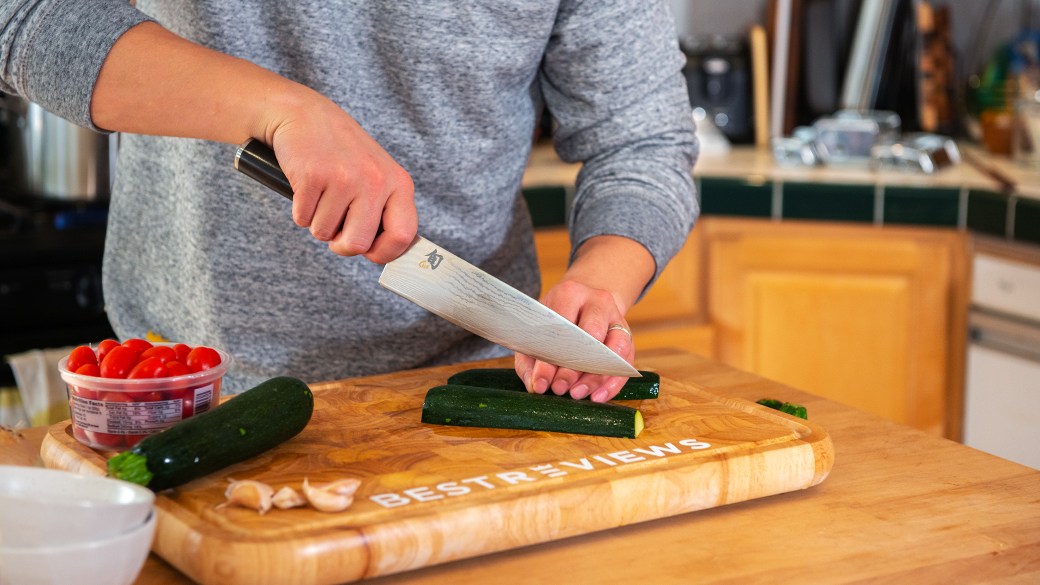When it comes to culinary precision and craftsmanship, German knives stand unrivaled. However, even the finest knives require diligent care to maintain their quality over time. A common concern among users is German knife rust prevention. Rust not only affects the blade’s performance but also its appearance. Addressing this issue early is paramount for any kitchen professional.
In this article, we will delve into the strategies for preventing rust on your prized German knives. We’ll explore why these knives are prone to rust, and provide practical, easy-to-implement solutions.

Why Do German Knives Rust?
German knives are renowned for their high-carbon stainless steel composition. While this material offers excellent sharpness and durability, it is also susceptible to rust if not properly cared for. The high carbon content, combined with moisture exposure, creates an environment where rust can easily form.
The Science Behind Rust Formation
Rust is essentially iron oxide, formed when iron reacts with oxygen in the presence of water. The high carbon content in German knives makes them particularly reactive under these conditions.
Proper Cleaning Techniques
One of the most effective ways to prevent rust is through proper cleaning. Always hand wash your German knives with mild soap and warm water immediately after use. Avoid using abrasive sponges or dishwashers as they can damage the blade’s surface.
Drying and Storing Knives
After washing, ensure that you thoroughly dry your knives with a soft cloth. Any remaining moisture can lead to rust formation. Store your knives in a dry, well-ventilated area. Using a knife block or magnetic strip can help keep them dry and organized.
Regular Maintenance and Sharpening
Regular maintenance is key to prolonging the life of your German knives. Sharpening them frequently not only improves performance but also helps remove any surface rust.
Using Honing Steel
A honing steel can be used to maintain the blade’s edge and prevent rust. It’s advised to hone your knife before or after each use to ensure optimal performance.
Preventive Measures and Products
There are several preventive measures and products available that can help in rust prevention. Applying a thin coat of mineral oil on the blade can create a protective barrier against moisture.
Desiccants and Dehumidifiers
Using desiccants in your knife storage area can absorb excess moisture. Similarly, a dehumidifier can be an excellent addition, particularly in humid environments.
How to Remove Rust From German Knives
If rust does form, it is crucial to address it promptly. Using a paste of baking soda and water can gently scrub away rust without damaging the blade.
Professional Rust Removal
In severe cases, seeking professional rust removal services can restore the knife to its former glory.
The Importance of Quality Knife Care
Investing in quality knife care is essential for preserving the functionality and aesthetic of your German knives. Proper care ensures they last for generations.
Learning Knife Care Techniques
For those new to knife maintenance, resources such as workshops or online tutorials can provide valuable insights and hands-on experience.
The Role of Environmental Factors
Understanding the role of environmental factors in rust formation can aid in preventing it. For instance, using knives in a coastal region may require additional preventive measures due to higher humidity and salt content in the air.
Adapting to Different Environments
Adapting your knife care routine according to your environment can significantly reduce the risk of rust.
Comparing German and Japanese Knives
While both German and Japanese knives are renowned for their quality, they differ in terms of material composition and maintenance needs. Understanding these differences can help optimize your care routine.
Choosing the Right Knife for Your Needs
Choosing between German and Japanese knives depends on personal preference and intended use. Each type has its unique strengths and weaknesses.
Conclusion
In conclusion, proper care and maintenance of German knives are crucial in preventing rust and preserving their precision. By incorporating the tips and techniques discussed, you can ensure your knives remain in top condition for years to come.
Further Reading
For more insights on knife care, visit our guide on testing German knife sharpness and the history of Zwilling knives.

FAQs
Can I use olive oil for rust prevention?
While olive oil can be used, it is not recommended as it can become rancid over time. Mineral oil is a better alternative.
Is it okay to store my knives in a drawer?
Storing knives in a drawer is not ideal as it can cause them to chip or become dull. A knife block or magnetic strip is preferable.
How often should I sharpen my German knives?
The frequency of sharpening depends on usage, but generally, honing should be done before or after each use, with professional sharpening every few months.
For more on distinguishing between knife types, consider reading about German vs Japanese knives.
This article contains affiliate links. We may earn a commission at no extra cost to you.


